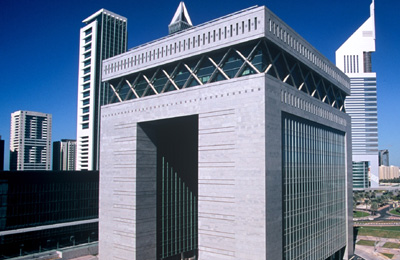
New UAE fund rules may hit DIFC firms
Dubai, August 2, 2012
New United Arab Emirates investment fund rules could hurt the country's ambitions to become a more important financial centre, analysts said, adding that regional rival Qatar could reap the benefits.
The new rules from the Securities and Commodities Authority (SCA) will apply to firms based in Dubai's financial tax-free zone. They include minimum capital requirements for new domestic funds and guidelines on promoting and offering foreign funds in the UAE.
Much of the latter is done by firms in the Dubai International Financial Centre (DIFC), the emirate's free zone business hub which houses global banks and investment firms.
The authority has classified funds created inside the free zone as 'foreign funds', which were previously operating under offshore laws.
The foreign fund rules, which come into effect when the government gazette is published, mean offerings must go through a local promoter such as banks, investment firms or other promoters, all of whom must be licensed by the central bank.
Other rules require those setting up a local investment fund or promoting a foreign investment fund in the UAE to obtain a special license, according to a circular posted on the SCA's website this week.
"It's just one more layer of regulation that should not be a stumbling stone as long as it doesn't impede the investment of foreign investors in funds based here," said Amer Khan, fund manager, Shuaa Asset Management.
"One major concern though is from a regional perspective. Qatar is bending over backwards to attract foreign funds to its financial district. For the UAE to add another layer of regulatory framework at such a time, it might prompt some funds looking to set up over the next year or so to head to Qatar instead of the UAE."
The Qatar Financial Centre provides a platform for financial services, focusing on reinsurance and asset management, and has been positioned as the gas-rich Gulf state's answer to Dubai's financial centre.
Law firm Clifford Chance said the new rules may inadvertently give rival free zones a competitive advantage.
"Some of the ways foreign firms have been able to sell investments in funds is going to change. There are a lot of funds that aren't licensed for public offering and are meant for institutional investors - the concern is restricting the ability of these foreign firms to sell funds onshore," Tim Plews, partner at the law firm said.
"This is a tougher regime than before. There is probably going to be a period of time when the industry will say the regulations are slowing down the product pipeline and they can only move at the speed of approvals given out by the SCA."
The SCA said all existing funds have a one-year grace period to comply with the new regulations.
Entities licensed by the central bank are exempt from minimum capital requirements - 10 million dirhams ($2.72 million) - but must provide bank guarantees from a local bank.
The regulator can cash in the guarantee to pay off any financial liabilities. Central bank-licensed firms are also exempt from having to make funds their core business.
The new regulations may help lift the country's status as it seeks approval for an upgrade from index provider MSCI.
"Working without a proper regulatory framework on investment funds was a shame. This shows they (UAE authorities) are responding to what foreigners require of them to join the line of emerging markets," said Reda Gomaa, portfolio manager at Mashreq.
UAE bourses are still classified as frontier markets by index provider MSCI, failing to make the upgrade to emerging markets status for four consecutive years. - Reuters







